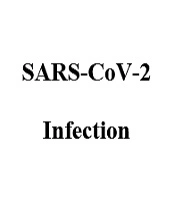Dear Editor,
Infliximab is a chimeric monoclonal antibody that blocks TNF-α. Infliximab has been gained FDA approval in 1998 against autoimmune diseases such as Crohn’s disease, ulcerative colitis, rheumatoid arthritis, ankylosing spondylitis, psoriasis, psoriatic arthritis, and Behcet’s disease (1).
In recent, we are lives in the pandemic era with coronavirus disease 2019 (COVID-19). There are more than 35.1 million cases who are infected with severe acute respiratory syndrome coronavirus-2 (SARS-CoV-2) and 1.04 million deaths. Unfortunately, there is no specific antiviral therapy against COVID-19 (2). According to the literature, a small part of SARS-Co-2 infected cases were developed to acute respiratory distress syndrome (ARDS) and multi-organ failure. It has been suggested that intensive inflammatory response, cytokine storm syndrome, plays a central role in constitutive inflammatory cytokine production and susceptibility to acute ARDS. Therefore, in the current situation that there are no antiviral FDA-approved drugs, immunotherapy is the only solution for the treatment of severe SARS-CoV-2-infected cases (3). It has been suggested that the Infliximab can prevent overexpression of pro-inflammatory cytokines i.e., TNF-α, IL-6, and C-reactive protein (CRP) by which prevents cytokines storm and disease severity such as ARDS (3, 4). In the present literature, we evaluated all available evidence for the efficacy of Infliximab against patients with COVID-19.
We conducted a systematic search for obtaining all relevant studies related to the efficacy of Infliximab against SARS-CoV-2 infection using several online databases, including PubMed, Scopus, Embase, Cochrane library, ScienceDirect, Lancet, JAMA, Nature, Springer, Weily, medRxiv, and bioRxiv using several keywords “Infliximab”, “Remicade”, “TNF-α”, “COVID-19”, “SARS-CoV-2”, and “n2019-CoV”. The required information is summarized in Table 1. Moreover, the clinical efficacy of Infliximab in the reduction of mortality, as well as requiring mechanical ventilation and reducing the plasma level of CRP, were measured by statistical analysis (5).
| First Author | Country | Type of Study | Infliximab Dosage, mg/kg | The Patients’ Presentation | The Main Findings |
|---|---|---|---|---|---|
| Bezzio et al. (6) | Italy | Case report | 5 | Ulcerative colitis, fever, dyspnea, cough and bilateral patchy ground-glass opacities in CT | CT showed clear normalization of CRP and IL-6 nasopharyngeal swab test was negative |
| Stallmach et al. (7) | Germany | Case series | 5 | Sever cases of COVID-19 | Reduction in mortality, ICU admission, and requiring for mechanical ventilation normalization of CRP |
| Dolinger et al. (8) | USA | Case report | 10 | Crohn’s disease fever, erythematous maculopapular facial rash, positive test for SARS-CoV-2 | Fever, tachycardia and hypotension resolved CRP normalized case was discharged |
We found only three relevant articles about the application of Infliximab against SARS-CoV-2 infection (6-8). The main findings of each study are listed in Table 1.
We enrolled a total of 29 participants in the pooled analysis using comprehensive meta-analysis (CMA) software version 2.2 (Biostat, Englewood, NJ, USA). There are decreasing number of death (OR: 0.22; 0.023 - 2.296 with 95% CIs), ICU admission (OR: 0.26; 0.03 - 2.01 with 95% CIs) and requiring for mechanical ventilation (OR: 0.44; 0.083 - 2.38 with 95% CIs) in infliximab received patients. Moreover, the median plasma level of CRP was reduced in infliximab-receiving patients compared to not received cases (130.93; 130.34 - 131.52 with 95% CIs versus 187.01; 186.52 - 187.45 with 95% CIs).
In summary, we revealed the clinical benefit of Infliximab for the treatment of SARS-CoV-2 infection; there are no contradict documents for the disadvantage or inefficacy of infliximab against COVID-19. Two registered clinical trials that investigated the clinical benefit of Infliximab for the treatment of COVID-19 (NCT04425538, NCT04344249). We need further investigation with a larger sample size to confirm the present findings.
